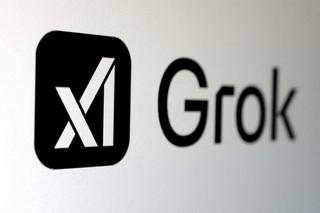The Executive Chairman of the Federal Inland Revenue Service, Zacch Adedeji addressed Nigeria’s recent tax reforms on Wednesday, as industry leaders discussed both progress and challenges.
Adedeji, represented by the Acting Director of the Medium Taxpayers Department, South, Oti Olaniyi described the restructuring of the FIRS as a customer-centric shift aimed at enhancing efficiency and responsiveness.
Adedeji made these remarks at the Lagos Chamber of Commerce and Industry’s Organized Private Sector Stakeholders’ Engagement on Emerging Tax Matters, according to The Punch.
He highlighted that the agency’s transformation aims to decentralize operations, adopt technology, and streamline tax services. This includes the introduction of the ‘TaxPro Max’ platform, which simplifies tax filing and enhances compliance through e-filing, e-reporting, and other digital solutions.
“FIRS is committed to a customer-focused service delivery aimed at boosting voluntary compliance and increasing revenue generation,” he said.
According to the FIRS boss, the agency’s new structure includes three operational groups—small, medium, and large taxpayers—to address the needs of various taxpayer segments more effectively.
He emphasised the agency’s need to broaden the tax base, owing to Nigeria’s heavy reliance on oil revenues and a means to promote diversification into non-oil revenues to meet infrastructure needs and grow the economy.
The FIRS chairman reiterated the introduction of a simplified withholding tax regime for small businesses, along with reduced rates for low-margin enterprises, aimed at minimizing tax avoidance and promoting compliance.
He also mentioned other reforms, including tax incentives for the gas sector, as part of the government’s efforts to stimulate investment and foster growth.
Adedeji highlighted incentives like zero VAT on compressed natural gas and liquefied petroleum gas, aimed at boosting the sector and diversifying Nigeria’s energy mix.
He urged businesses and citizens to collaborate in enhancing Nigeria’s tax system, emphasizing that transparency and innovation are crucial for ensuring long-term success.
He emphasised the importance of tax education and public awareness in fostering a culture of compliance.
The President of the LCCI, Gabriel Idahosa, called for increased collaboration between the private sector and government in addressing Nigeria’s fiscal challenges.
He stated that Nigeria’s tax-to-GDP ratio remains low at 10.86 percent, compared to the African average of 15-20 percent.
He noted that the Federal Government would need comprehensive reforms and strong cooperation between public and private stakeholders to increase this ratio to 18 percent within three years.
Idahosa praised the FIRS for its ongoing efforts to enhance tax administration through technology, particularly the ‘TaxProMax platform.’
He also commended the establishment of the Presidential Committee on Fiscal Policy and Tax Reforms, chaired by Taiwo Oyedele.
A highlight of the event was the response of the LCCI Director General, Dr Chinyere Almona, a member of the Presidential Committee on Fiscal Policy and Tax Reforms, said the wait for legislative approval for the new withholding tax regime had delayed the implementation of the reform.
“The tax law is being revised but that has to go through a process of approval. It’s difficult to have things come out piecemeal, as it won’t benefit anyone to have reforms that are not integrated,” Almona remarked.










